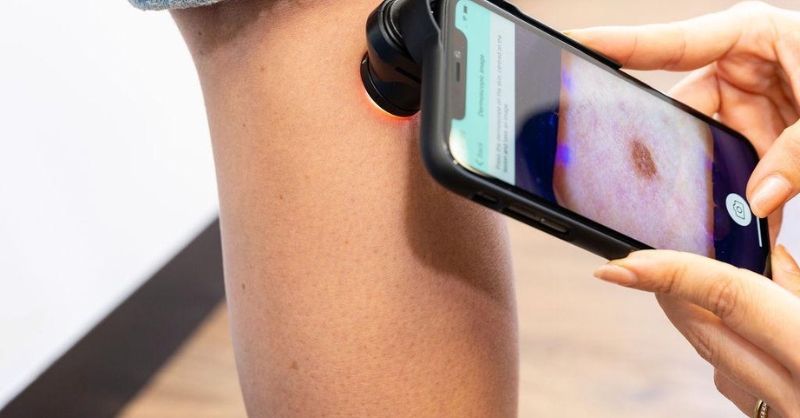
Skin cancer is reportedly one of the most common cancers globally, with millions diagnosed every year. Despite its prevalence, many healthcare systems are ill-equipped to handle the rising demand for early detection, with dermatologists in short supply. In Europe, there are just 30 dermatologists per million people, which is far too few to meet patient needs. Delays in diagnosis can mean the difference between life and death.
This is where British healthtech startup comes into the picture with it’s mission to ensure no one dies from skin cancer.
Funding to fuel global expansion and growth
The startup has just landes £15 million in Series B funding, led by Intrepid Growth Partners. This funding marks a major milestone following Skin Analytics’ historic achievement of receiving EU MDR Class III CE mark approval, making its AI system, DERM, the first legally authorised AI device in the world capable of making independent clinical decisions for skin cancer diagnosis, without human review.
With this investment, Skin Analytics plans to expand its focus and launch products that cover all dermatology concerns as well as expand internationally to other key markets struggling with dermatologist shortages such as Europe and Australia. It will also accelerate their move into the US market.
Also, the company is actively recruiting top-tier AI and healthcare talent, using this funding to attract world-class professionals who want to transform cancer detection forever.
AI that thinks like a dermatologist
Founded in 2012 by Neil Daly, Skin Analytics was born from a simple but powerful idea: technology could save lives if it enabled early and accessible skin cancer detection. After launching teledermatology services in 2015, the company evolved into an AI pioneer, aiming to bring scalable solutions to overburdened health systems.
DERM by Skin Analytics is not just another medical AI. It is trained on a vast real-world dataset accumulated over 12 years. It recognises cancerous lesions, pre-malignant conditions, and common benign lookalikes. Using this database, DERM evaluates moles and skin lesions and makes triage recommendations, identifying which patients need specialist care and which don’t.
DERM can discharge up to 40% of urgent suspected cancer referrals, allowing dermatologists to focus on the patients who need them most. It has also reduced face-to-face dermatology appointments by up to 95% in NHS settings.
The AI is touted to have a Negative Predictive Value of 99.8%, meaning it almost never misses a cancer that requires urgent attention. That even outperforms the 98.9% accuracy rate of dermatologists in face-to-face consultations. To date, the system has been deployed in 26 NHS sites, assessed over 150,000 patients, and detected more than 14,000 cancers.
What’s next?
Skin Analytics is not just another healthtech company. It is reshaping how we approach one of the world’s most common and deadly diseases. With rigorous science, regulatory credibility, and now a solid financial boost, the company is uniquely positioned to democratise dermatology, reduce diagnostic delays, and save thousands of lives.
As AI reshapes medicine, Skin Analytics offers a compelling example of how technology can amplify clinical care, not replace it, bringing timely, accurate skin cancer detection to patients when and where they need it most.
Neil Daly, founder and CEO of Skin Analytics, said: “AI allows us to move from a world of specialist scarcity to one where we have the capacity to see everyone who is concerned about their skin. Starting with skin cancer, this funding allows us to work with our partners to build new models of care that everyone can access, whenever they want to. That brings us closer to the world where no one dies from skin cancer. We have proven this technology in the UK and are now making it available globally.”
Mark Machin, Co-founder & Managing Partner at Intrepid Growth Partners, commented: “At Intrepid Growth Partners, we invest in transformative machine intelligence-driven solutions that address critical challenges, and Skin Analytics exemplifies this vision. Their technology is redefining early skin cancer detection, improving patient outcomes while reducing healthcare costs. We are excited to support their growth as they scale their impact globally.”
The post AI that thinks like a dermatologist: Skin Analytics lands £15M for autonomous skin cancer diagnoses appeared first on Tech Funding News.